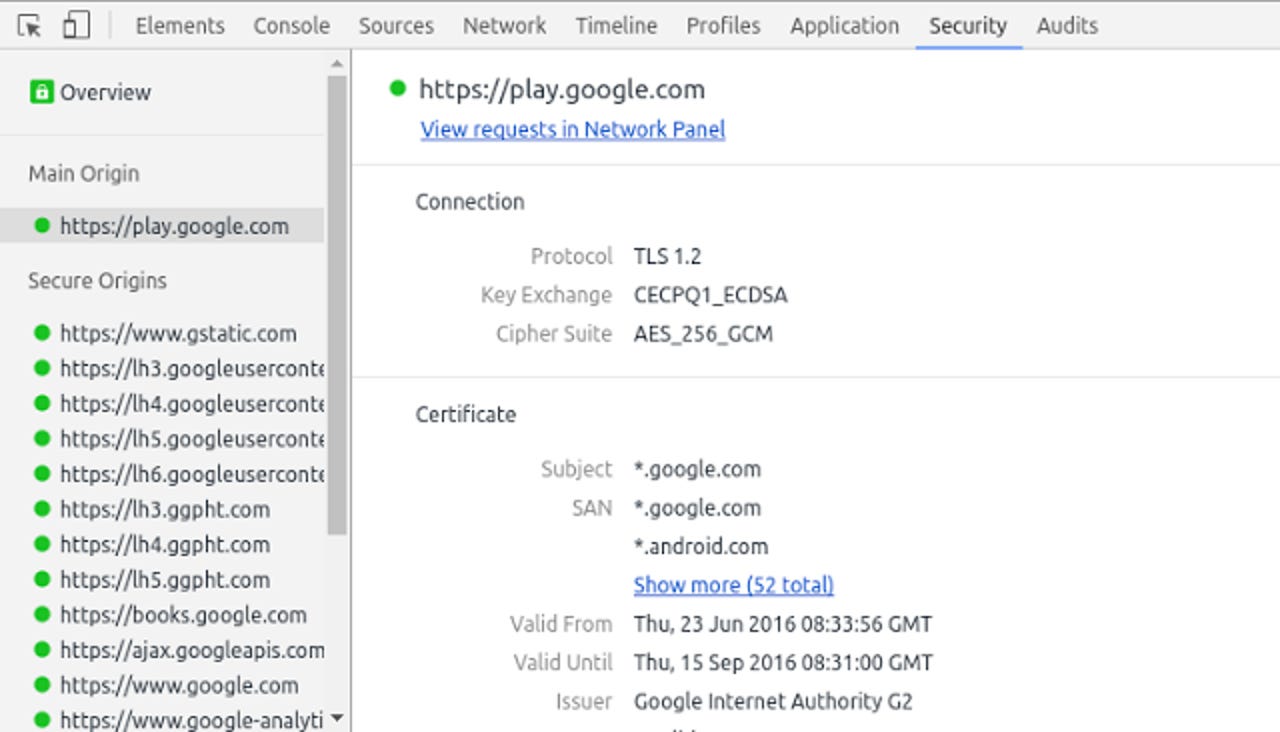Google is experimenting with post-quantum cryptography


Anticipating the development of large quantum computers that could theoretically break the security protocol behind HTTPS, Google announced Thursday that it's experimenting with post-quantum cryptography in Chrome.
The company is adding a post-quantum key-exchange algorithm to a small fraction of connections between desktop Chrome and Google's servers, Google software engineer Matt Braithwaite explained. The post-quantum algorithm will be added on top of the existing, elliptic-curve key-exchange algorithm that's typically used, ensuring the same level of security for users.
The experiment is currently enabled in Chrome Canary, and users can look for it by opening the Security Panel under Developer Tools and looking for "CECPQ1".
The experiment should give Google real-world experience with the larger data structures that post-quantum algorithms will likely require, Braithwaite wrote, while putting the spotlight on an important area of research.
"A hypothetical, future quantum computer would be able to retrospectively decrypt any internet communication that was recorded today, and many types of information need to remain confidential for decades," he wrote. "Thus even the possibility of a future quantum computer is something that we should be thinking about today."
Unlike digital computers, which use ones and zeros to perform calculations, quantum computers use subatomic quantum bits, or qubits. Qubits can be in multiple states at once and are consequently capable of carrying out more calculations in parallel.
Google, for its part, has used the D-Wave quantum computer it bought a few years ago to develop new quantum computing techniques that could have applications in fields like chemistry. Other companies like Microsoft, IBM, and Intel are also working on quantum computing. Microsoft founder Bill Gates earlier this year sounded optimistic about the development of the field, saying, "There is a chance that within six to 10 years cloud computing will offer super-computation by using quantum."
Meanwhile, several telecom firms like South Korea's SK Telecom and KPN in the Netherlands are currently testing new quantum encryption algorithms.
For its post-quantum cryptography experiment in Chrome, Google is using the post-quantum algorithm called New Hope.
"We explicitly do not wish to make our selected post-quantum algorithm a de-facto standard," Braithwaite wrote on the Google blog. "To this end we plan to discontinue this experiment within two years, hopefully by replacing it with something better."
Read more on quantum computing
- Google's quantum computer inches nearer after landmark performance breakthrough
- Everyday quantum computing is years off - so why are some firms already doing quantum encryption?
- University of WA test drives quantum supercomputer
- IBM Research hooks up quantum processor to cloud for test drive
- You can take IBM's quantum processor for test drive in the cloud
- Quantum cloud computing could arrive in the next decade, says Bill Gates